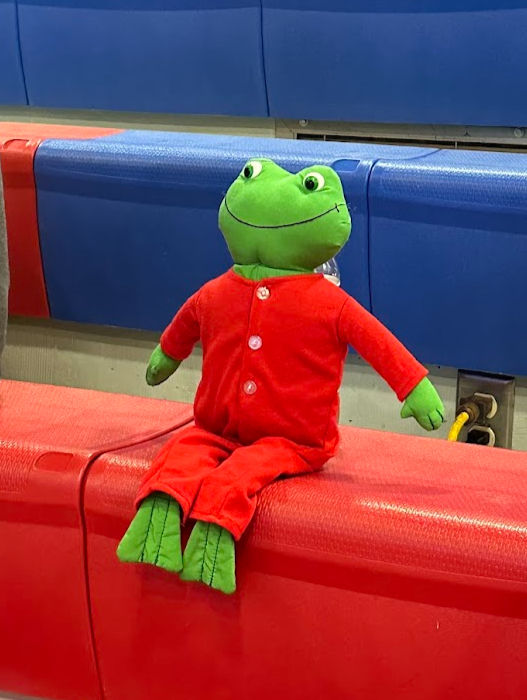Reviving AMSEA Rural Schools Marine Safety Training in Southeast Alaska
- AMSEA
- Sep 15, 2025
- 3 min read
By: Romi Manela
This past spring, AMSEA resumed hands-on marine safety training in Southeast Alaska’s rural schools after a COVID hiatus. Our Rural Schools Program is built on the idea that the best way to reduce injuries and fatalities on the water is by building good safety habits early, giving young Alaskans practical experience that will stay with them into adulthood. This year, we were able to bring training to students in Angoon, Hoonah, Gustavus, Pelican, and Kake.
In Kake, the whole student body gathered in the auditorium to learn about PFD sizing, H.E.L.P. and huddle positions, “Froggy Gets Dressed” for cold weather layering basics, the Seven Steps of Survival, knot tying, MAYDAY calls, burrito wraps (a technique for wrapping hypothermic victims), and person-overboard recovery. We also delivered new PFDs for the Kids Don’t Float loaner program at the harbor. Students especially enjoyed the hands-on parts of the training, like tying knots using practice cleats and dragging each other across the gym floor to safety with throw bags in the POB drill.

In Angoon, middle and high school students practiced the Seven Steps of Survival, signals, survival and ditch kits, PFD use, H.E.L.P. and huddle, MAYDAY, POB recovery, knot tying, and navigation with tides, currents, and anchoring. The PFD fashion show was a big hit, and students especially enjoyed building a fire at the end of the day, which we celebrated by roasting marshmallows together.
In Hoonah, the training included PFD fit, reading “Froggy Gets Dressed,” the Seven Steps, signals and MAYDAYs, H.E.L.P./huddle, throw bags, immersion suits with a pool session, survival kits, knot tying, navigation, tides and anchoring, fire building, hypothermia and burrito wraps, and outdoor shelter building near the airport. In one lesson, the older students emptied their pockets to assess their preparedness for a survival situation, reflecting on items they’d want for a personal survival kit. Some students who were initially hesitant ended up really enjoying the pool session, and younger children created paper PFDs “ditch kits” by drawing in items they’d bring in an abandon ship scenario.

In Pelican, students read “Froggy Gets Dressed”, practiced PFD fit, the Seven Steps, hypothermia and burrito wraps, survival and ditch kits, signals and MAYDAYs, fire building, knot tying, navigation, tides and anchoring, H.E.L.P./huddle, throw bags, immersion suits, and shelter building in a local parent’s backyard. Energy and enthusiasm was high for fire building, shelter building, and the cold water demonstration, where students stuck their hands in icewater and then attempted putting on PFDs with their icy hands. Students worked well together across age groups, with older kids taking responsibility for helping younger students in the water session where we practiced immersion suit survival formations at the float plane dock.
Coral Pendell and Ashely Green taught in Gustavus. In Gustavus, students conducted science experiments to learn about heat retention and hypothermia, practiced making emergency signals, conducted small vessel safety orientations, tested anchor scope and holding power, and learned basic navigation skills.
Across all these communities, the focus was on building real-world skills: wearing and fitting PFDs, practicing cold-water survival positions, handling immersion suits, making MAYDAY calls, recovering a person overboard, and learning survival kits, fire building, and shelter basics. The enthusiasm of students, especially for hands-on activities, showed just how valuable this training is for building up safety culture in Alaska’s rural communities.
A big thank you to Anji Gallanos, Karen McSpadden, Emma Demmert, Nicolle Egan, Nathaniel Barker, Ajax Eggleston, and all of our community partners who made training possible this spring. AMSEA looks forward to continuing these partnerships, as well as expanding to more communities as we welcome our new youth coordinator, Suzanne Oriel.



Comments